Does Pre Workout Help Build Muscle?
Author:
Unlock your full potential by engaging with our experts and community! Have questions about your fitness journey or looking for expert advice on weightlifting techniques? Don’t hesitate — leave a comment below and Jacek Szymanowski will provide a personalized answer and insights to help you reach your goals.
Torokhtiy is reader-supported. Some links are affiliate links, and we may earn a commission at no extra cost to you. See our disclosure page for details.
Wouldn’t it be great to have a magic wand that will speed up muscle growth? Of course, that means all gym owners and personal trainers would go out of business, but wouldn’t it be nice?
Well, there’s no magic solution to get your muscles to grow so we do what we can to support that process. Pre-workouts can boost your energy and focus, which will allow you to train more intensely and this way, they’ll indirectly promote muscle growth.
They also contain ingredients that will increase strength and power (creatine) and amino acids that help with muscle recovery and reduce muscle breakdown. Add these all up and what do you get? A way to help your muscles grow!
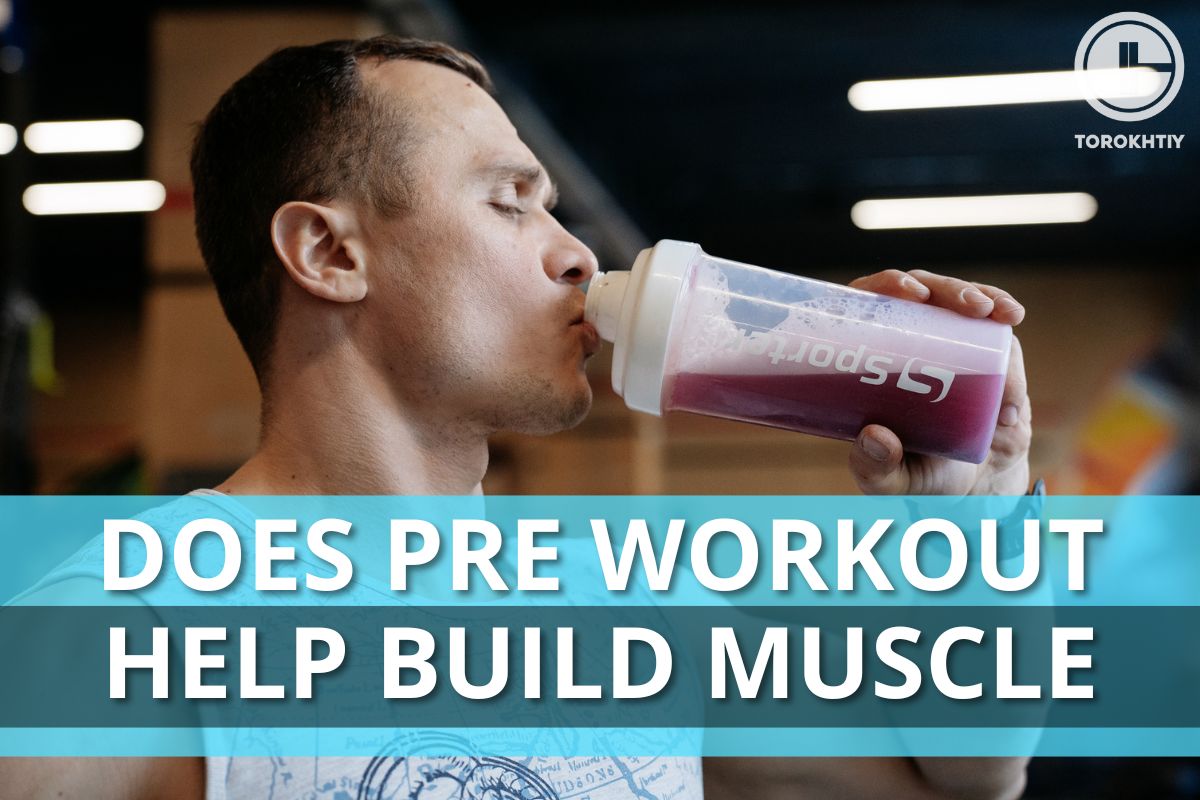
But that only happens if you choose the right kind of supplement, which is another thing we’ll explain in this article. Let’s see how pre-workouts help with muscle growth, how to choose the right one, and everything else you need to know about this subject!
How Do Pre-Workouts Help You Gain Muscle Mass?
Before we fully get into why pre-workouts are a good investment for building muscle, it’s worth noting that they won’t magically help you gain muscle overnight. If you want to put on muscle there’s no substitute for working hard in the gym, eating properly, and getting proper rest. However, there are several reasons pre-workout may help you with your goal of gaining muscle.
First is caffeine. While caffeine isn’t directly correlated with increases in muscle, it can provide a major boost of energy that will improve your performance in the gym. It will ideally enable you to train longer and harder, thus leading to a better workout, and eventually more muscle growth over time.
Next is all the other additional ingredients found in pre-workout. These include beta-alanine, betaine, l-citrulline, and creatine. As we established throughout the article, these ingredients all have their own unique benefits for building muscle. These include increasing force production, endurance, and high-intensity exercise performance.
By taking a pre-workout supplement that contains any combination of these ingredients at effective doses, you will ideally improve your performance in the gym, which will lead to more muscle growth over time. It’s worth noting that creatine, beta alanine and betaine are more beneficial when taken daily over the course of several weeks.
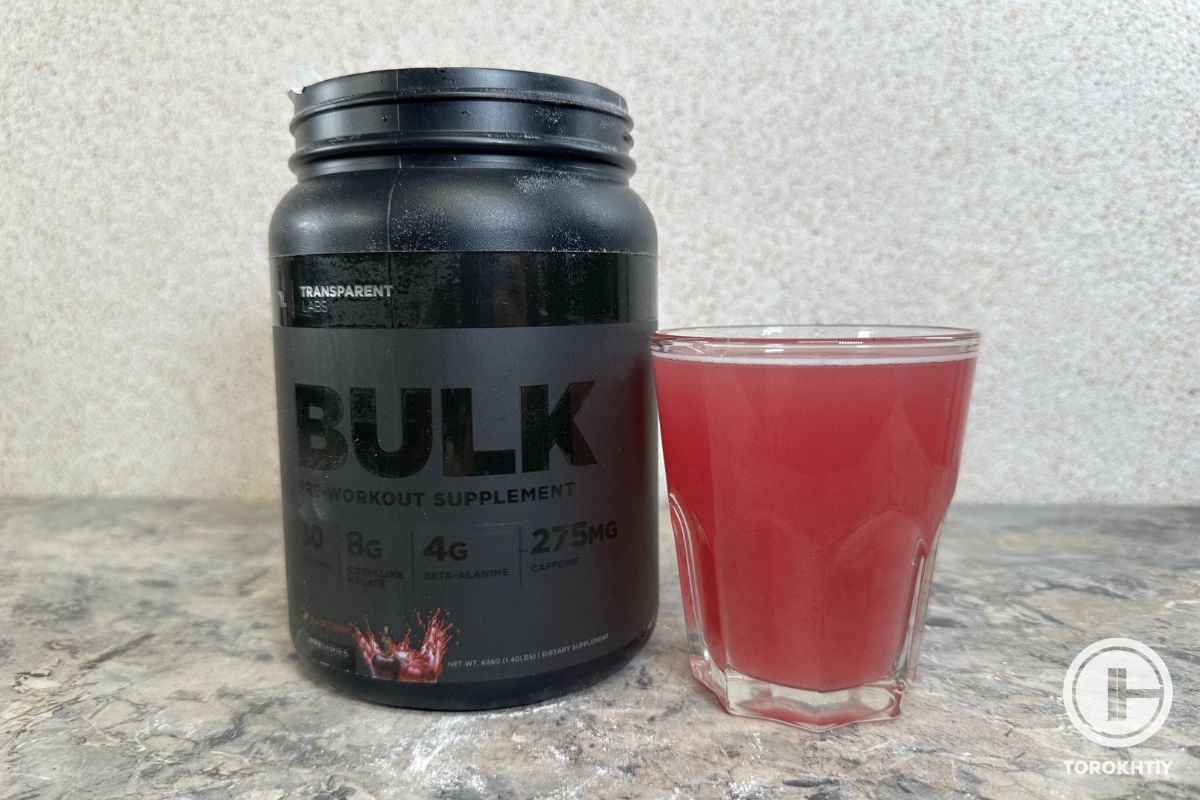
Because you likely won’t be taking pre-workout every day, to maximize the effectiveness of these ingredients – specifically creatine – we recommend taking an additional creatine supplement at a total dose 3-5g a day.
So, while pre-workouts won’t help you gain muscle mass without proper training, they will help you attack your workouts with more energy and intensity, which should translate to more muscle mass over time.
How to Find the Best Pre-Workout for Muscle Gain?
Now, there are several factors you’ll want to consider before buying a pre-workout if your goal is muscle gain. These mainly include stimulation and the additional active ingredients a supplement contains. However, you will also want to consider the value for your money, as well as the taste/flavor. These factors are all covered in more depth below.
1. Stimulation
When looking for a pre-workout to help with muscle growth, you might want a solid amount of stimulation that allows you to reach a higher level of intensity in your workouts. While this amount will vary from person to person, you’ll want a level of caffeine that gives you energy without making you jittery or anxious.
While the stimulation levels on our list reach up to 350mg per serving (Legion), you may prefer a milder dose of around 150mg (MyProtein). It’s worth understanding how much caffeine you consume on an average day to determine which level of stimulation will provide the best results for you.
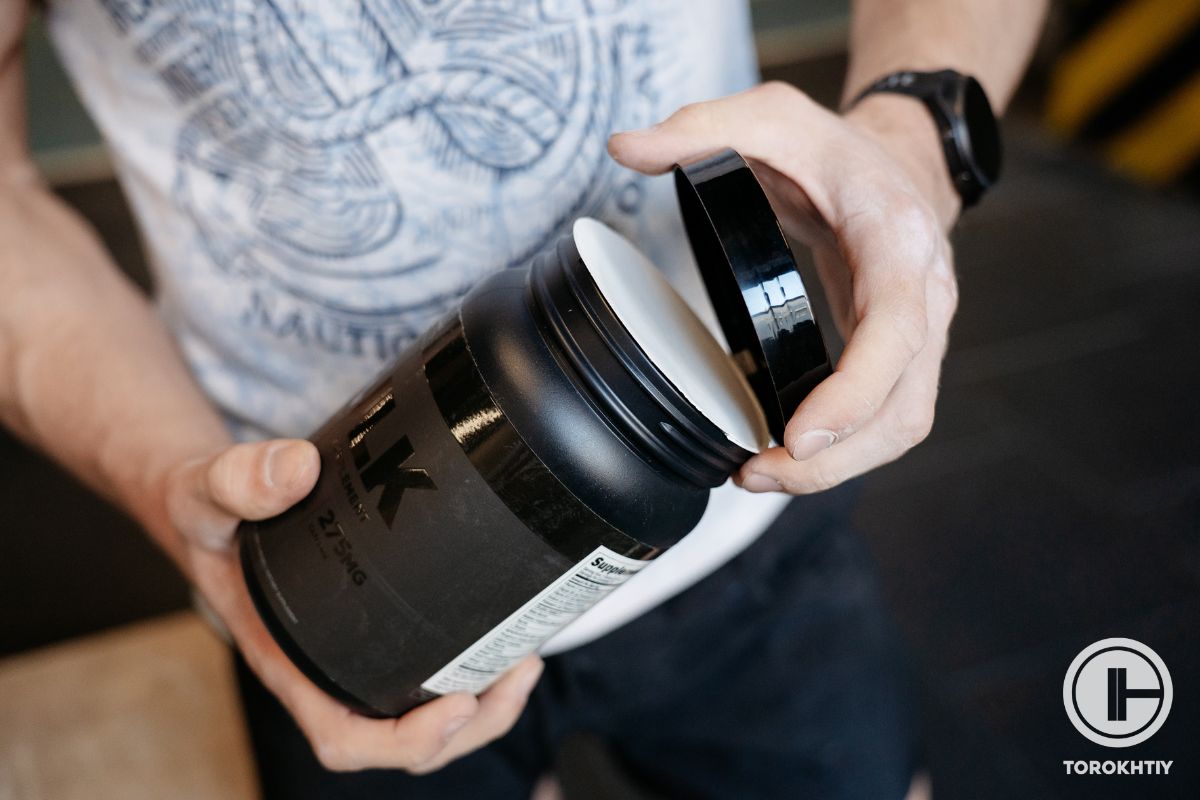
2. Additional Active Ingredients
On top of caffeine content, you’ll want to consider the additional active ingredients found in pre-workout. The 4 key ingredients we focus on in this article are creatine, l-citrulline, betaine, and beta-alanine.
They all have their own advantages for improving performance in the gym, and will likely benefit anybody trying to put on muscle. To maximize effects, we recommend looking for a product that contains several of these ingredients all at effective doses.
Beta-Alanine can help to increase power and reduce fatigue, and any dosage above should produce noticeable effects. Betaine can help to improve endurance and force, and should be anywhere from 1.25-2.5g per serving. L-Citrulline helps to increase performance, and reduce soreness, and any dose over 3g (4g of Citrulline Malate) should be effective.
Finally, creatine helps with high-intensity exercise performance, and while any dose should produce results, for optimal results, we recommend taking 3-5g daily. By understanding the effects of these ingredients, and their effective doses, you can make a more informed decision on which pre-workout formula will provide the best results.
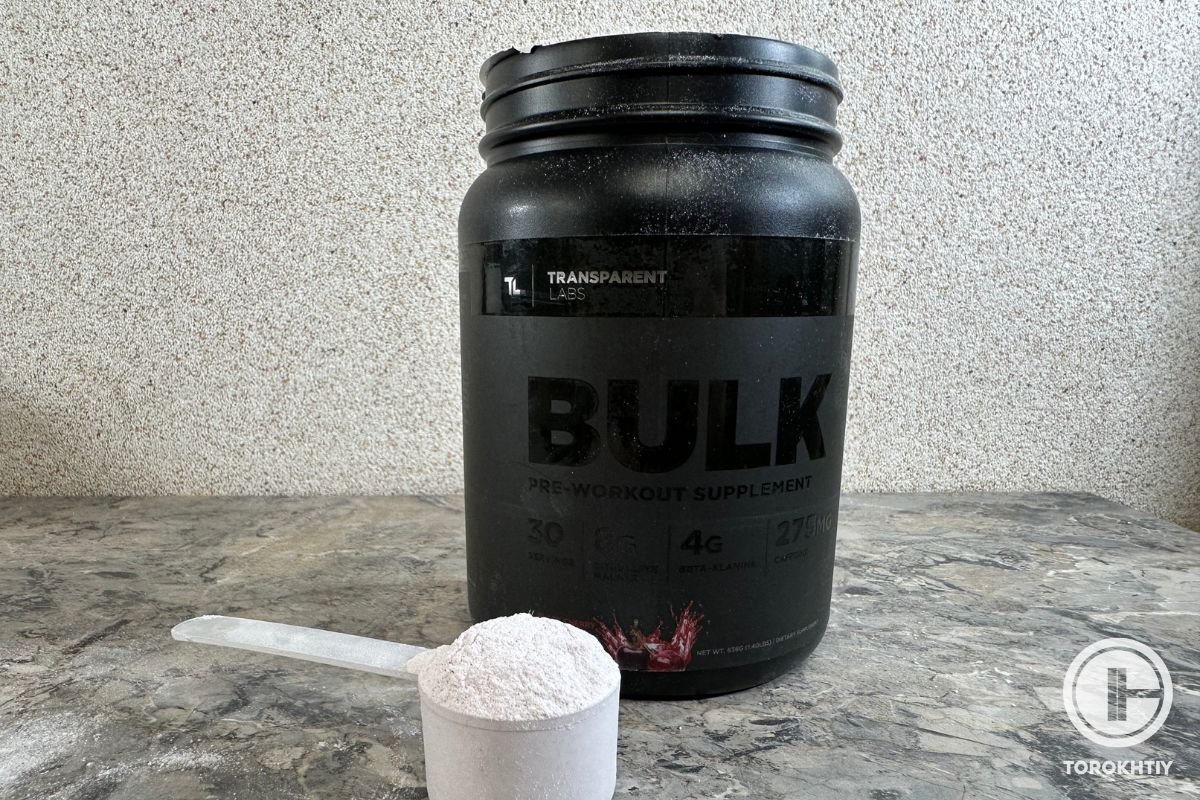
3. Value for Money
While this doesn’t directly correlate to muscle-building effects, we always recommend considering value for money when buying supplements. This not only includes price per serving, but the stimulation and doses of additional ingredients you’re getting in each scoop. By comparing products with these metrics in mind, you can ensure you’re getting a high quality pre-workout for your money.
4. Taste/Flavor
Finally, while this also doesn’t necessarily relate to muscle growth, you should absolutely enjoy the taste of your pre-workout. While it can be difficult to know how a pre-workout will taste before trying it, looking at user reviews can be a good way to gauge whether or not a pre-workout has an enjoyable taste.
BULK Black by Transparent Labs
- Form: Powder
- Best for: Muscular Strength, Muscular Endurance, Reducing Fatigue, Training Volume, Enhanced “Pumping” Effect, High-Intensity Exercise Performance
- Flavor: Cherry Kiwi, Blue Raspberry, Peach Mango, Sour Gummy, Black Cherry
- Caffeine: 275mg Caffeine Anhydrous, 30mg Dicaffeine Malate
- Special Ingredients: Citrulline Malate, Beta-Alanine, Betaine
- Package Information: 1.38lbs
- Serving: 21g
- Price per Serving: ~$1.83
- Company Founded: 2012
- Recommended by Athletes: Hafthor Bjornsson, Paul Sklar, Sean Harris
Bulk has 275mg of pure caffeine per serving, with 30mg of dicaffeine malate as well. Dicaffeine malate is caffeine bonded with malic acid. This is done to potentially give a slower release, and to prevent potential side effects like an upset stomach. This dose of total caffeine falls around the optimal range for solid stimulation, without being too intense.
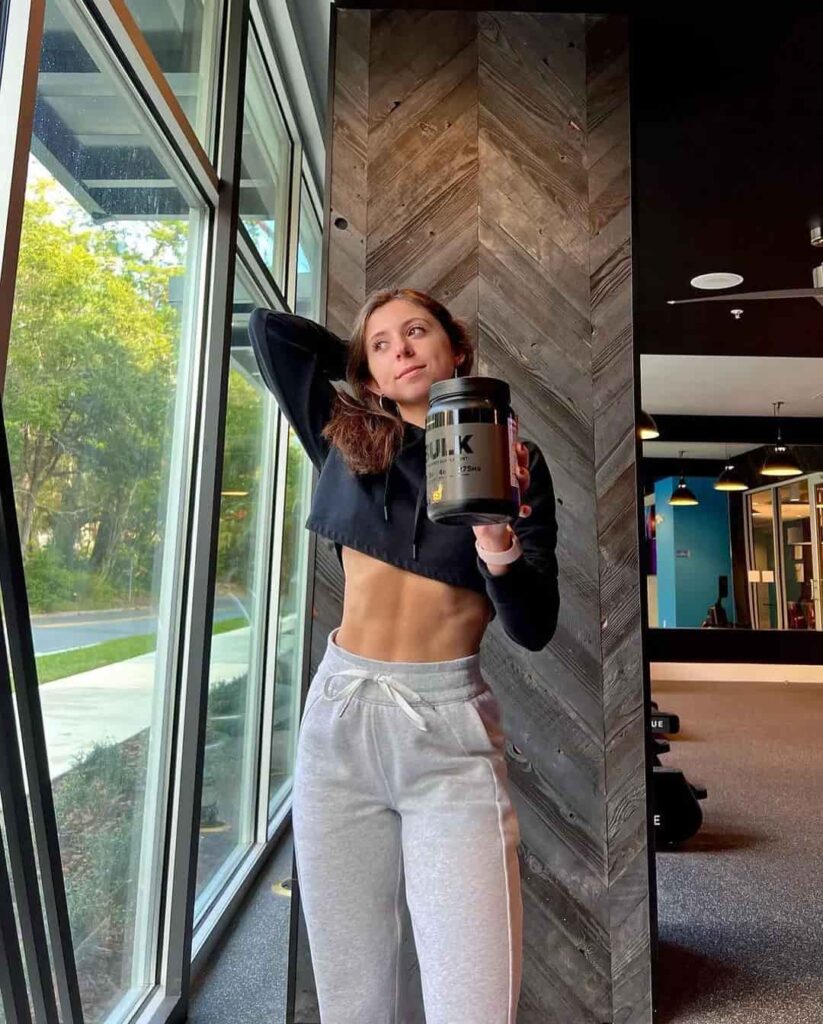
In terms of additional active ingredients, there are 4 you’ll specifically want to look for. These are L-Citrulline, Betaine, Beta-Alanine, and Creatine.
While Bulk Black doesn’t contain any creatine, it does contain the other 3. It contains solid doses of all these ingredients with 8g of Citrulline Malate (this is L-Citrulline bonded with malic acid at a 2:1 ratio), 4g of Beta-Alanine, and 2.5g of betaine.
These ingredients all have different, yet potent ergogenic effects. Beta-alanine can increase power output and reduce fatigue. Betaine can increase muscular endurance and force production. Finally, L-Citrulline also increases performance, and reduces soreness because of its properties as a vasodilator.
Finally, for the more minor elements – flavor, ingredient breakdown, and price – Bulk Black is solid as well. It has a good variety of 5 flavors to choose from. Also, like all of Transparent Labs’ products, it’s made without any artificial flavors, preservatives, or dyes. It’s price is also on the lower end of our list, at under $2 per serving.
In What Cases Will the Pre-Workout Not Really Contribute to Gaining Muscle Mass?
There are several factors that are necessary to gaining muscle mass, regardless of whether or not you’re taking pre-workout. If you’re not meeting these requirements, your gains will likely be minimal at best.
1. Caloric Surplus & Protein
If you’re looking to use pre-workout for weight gain, you won’t get the results you want without eating a high enough-calorie diet. While it is possible to gain muscle while in a caloric deficit, if your goal is to put on high amounts of muscle mass, we recommend eating in a consistent small caloric surplus.
We recommend using an online calorie calculator to determine your maintenance calories (keep in mind it’s based on average and might be off even up to 30%) and eating in a small surplus of extra 5-10% calories a day.
This will allow you to put on solid amounts of muscle without putting on too much excess fat. It’s also important to consistently measure your body weight to make sure your weight gain is in line with your goals. We recommend weighing yourself several times a week, calculating a weekly average and then comparing averages week by week, to keep track of how much weight you’re gaining.
In terms of protein content, eating anywhere from 0.7-1g of protein per pound of bodyweight will be ideal for muscle growth. Overall, no pre-workout for mass gain will be effective unless you’re pairing it with proper nutrition.
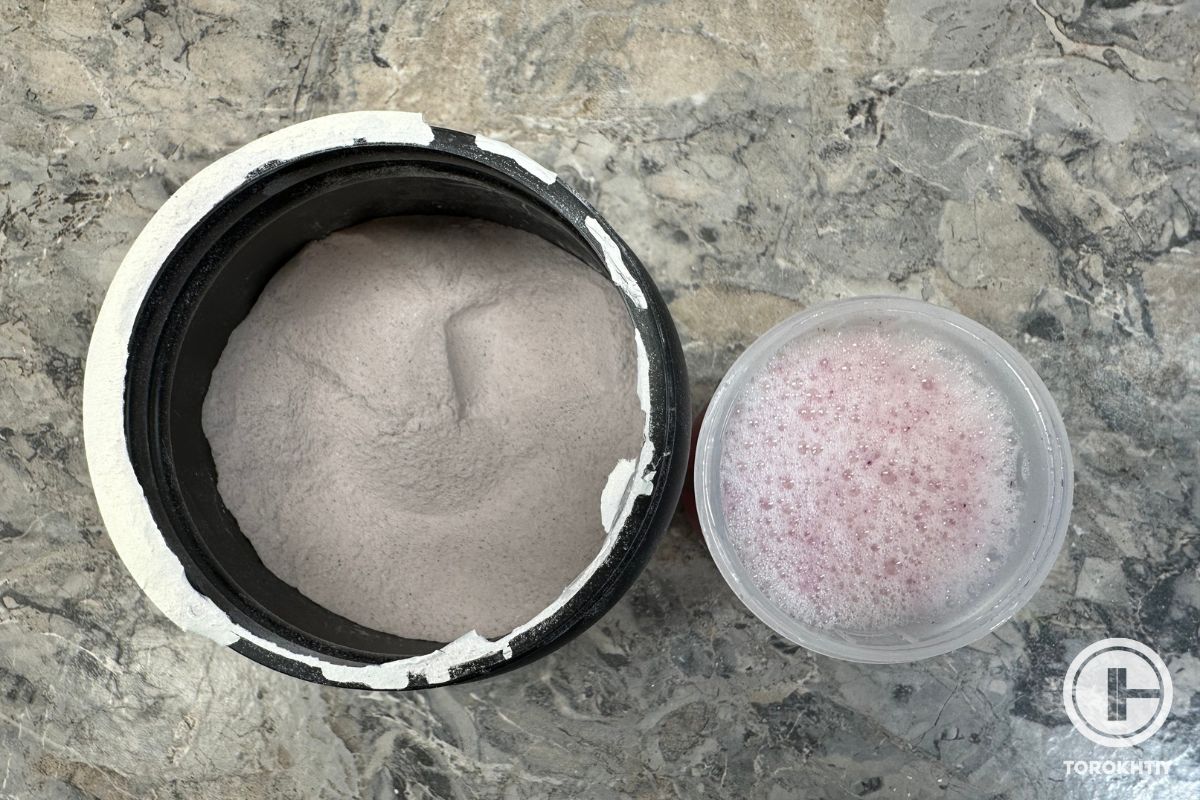
2. Progressive Overload and Intensity
Aside from eating enough calories, one of the most important factors in muscle growth is how you’re training. Your routines should be centered around progressive overload in order to properly stimulate muscle growth.
If you’re unfamiliar with this term, it essentially means that you need to gradually increase the stress placed upon your musculoskeletal and nervous systems – when the body regularly experiences the same exercises and physical stressors the training effect will be reduced. This is what is known as the law of accommodation.
Progressive overload can be done through various things like increasing weight, total reps and/or sets, and reducing rest times and more. By implementing progressive overload, you can ensure your muscles are always getting the proper stimulation they need to grow.
It’s also worth noting that you should almost always be training in close proximity to failure with sufficient volume to ensure your workouts have a high level of intensity. If you’re not consistently pushing your limits, it is unlikely you will make significant progress. Similar to nutrition, no pre-workout for muscle-growth will produce results unless you’re training hard.
3. Consistency
Of course, eating in a caloric surplus, and training properly won’t matter if you’re not doing both consistently. Putting on muscle is a marathon, not a sprint. It’s necessary that you eat properly and train hard consistently for years on end if you want to maximize muscle growth.
If you’re doing everything right and not seeing the results you want right away, remember that consistency is key in putting on muscle. Don’t get discouraged if things don’t happen overnight! It’s important to have realistic expectations when trying to put on muscle – you can estimate how much muscle mass you can build in a specific timeframe – and to accept that it will take plenty of time and lots of hard work.
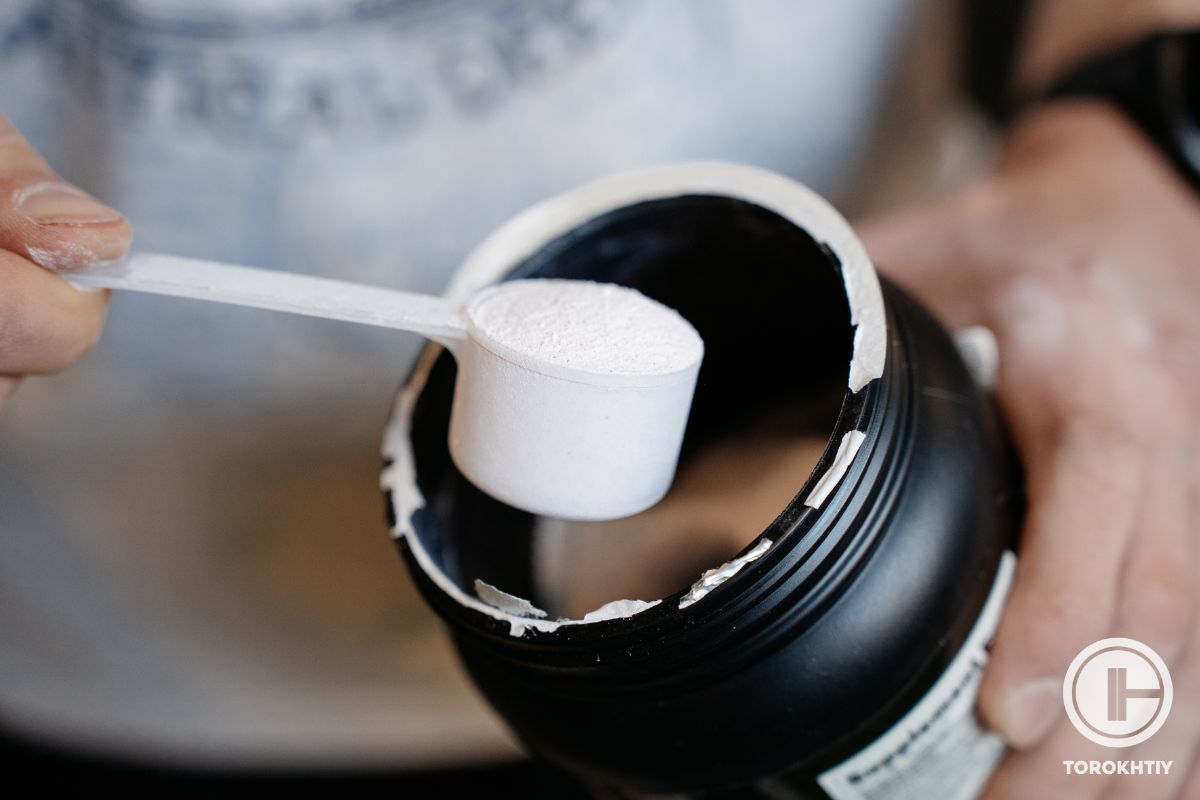
FAQ
Does Pre-Workout Help Build Muscle?
While pre-workout won’t help you put on muscle on its own, it should help you have more energy and intensity in the gym, which can lead to more muscle growth over time. Considering the stimulation and additional active ingredients, pre-workouts are supplements you can take for muscle growth.
What Is The Best Pre-Workout Food For Muscle Gain?
To fuel your workouts properly, we recommend eating a properly balanced meal 2-4 hours before your workout, or if missing one, a small carb snack around 1 hour out, and maybe some more simple carbs right before your workout in case you have an intensive or long workout ahead of you.
In case you need one – for right before your workout, we recommend something quick and easy like a juice, ripe banana or a spoonful of honey. It’s worth noting that timing your food intake isn’t nearly as important as just getting enough protein and calories throughout the day, so be sure to prioritize this over when you’re eating your meals.
Should I Eat Before The Gym?
Yes, to properly fuel your workouts you should absolutely eat before the gym. Even if it’s something as simple as a banana or piece of toast, a small amount of carbs before a workout can greatly improve energy levels and performance. This is especially true if your pre-workout snack is paired with a solid pre-workout supplement.
Overall, consuming carbs right before the gym might be beneficial if you train first thing in the morning, or after fasting. If you’ve eaten enough throughout the day before your workout, you shouldn’t worry much about eating before training.
Conclusion
While pre-workouts aren’t a miracle solution for muscle growth, they are a good way to give yourself extra energy and help you maintain proper intensity in the gym, which will lead to more gains over time.
Our recommendation for an excellent pre-workout to build muscle is BULK BLACK by Transparent Labs. But whatever you decide to try, just make sure to use your pre-workout as a part of a balance diet and consistent training regimen.
Do you use pre-workouts and if you do, what results have you seen? We’d love to hear your thoughts in the comments below!
Also read:
- Best Pre Workout With Test Booster
- What Is Non Stim Pre Workout
- Best Healthy Pre Workout
- Electrolyte Supplements Guide
- What Is Intra Workout Supplement
- C4 Pre Workout Review
References:
- Eric T Trexler “International society of sports nutrition position stand: Beta-Alanine” J Int Soc Sports Nutr. 2015 Jul 15;12:30
- Jenna M. Apicella “The Effect of Betaine Supplementation on Performance and Muscle Mechanisms” B.S., University of Connecticut, 2009
- J Luke Pryor “Effect of betaine supplementation on cycling sprint performance” J Int Soc Sports Nutr. 2012 Apr 3
- Joaquín Pérez-Guisado “Citrulline malate enhances athletic anaerobic performance and relieves muscle soreness” J Strength Cond Res. 2010 May;24(5):1215-22
- Jeffrey Rogers “HEALTH, HUMAN PERFORMANCE AND RECREATION UNDERGRADUATE HONORS THESES” University of Arkansas 2019
- Richard B Kreider “International Society of Sports Nutrition position stand: safety and efficacy of creatine supplementation in exercise, sport, and medicine” J Int Soc Sports Nutr. 2017 Jun 13;14:18
- “Antioxidants” Harvard T.H. Chan School of Public Health https://www.hsph.harvard.edu /nutritionsource/antioxidants/ (accessed August 22, 2023)
- Brad J Schoenfeld “Dose-response relationship between weekly resistance training volume and increases” J Sports Sci. 2017 Jun;35(11):1073-1082
- Photos are made by Torokhtiy Media Team
Why Trust Us?
With over 20 years in Olympic weightlifting, strength training, nutrition coaching, and general fitness our team does its best to provide the audience with ultimate support and meet the needs and requirements of advanced athletes and professional lifters, as well as people who strive to open new opportunities and develop their physical capabilities with us.
By trusting the recommendations of our certified experts in coaching, nutrition, and sports training programming, as well as scientific consultants, and physiotherapists, we provide you with thorough, well-considered, and scientifically proven content. All the information given in the articles concerning workout programming, separate exercises, and athletic performance, in general, is based on verified data.
The product testing process is described in more detail here.
Author: Jacek Szymanowski
Certified Nutritionist,
M.Sc.Eng. Biotechnology
Performance Architect,
Strength and Conditioning Specialist
With over 30 years of fighting experience, specialization in nutrition coaching for athletes, and expertise in metabolic health and dietary strategies, Jacek offers a comprehensive approach to optimizing your performance and well-being. Backed by a Master of Science degree in Biotechnology, Jacek remains at the forefront of scientific advancements, ensuring that his coaching is always evidence-based and up-to-date.



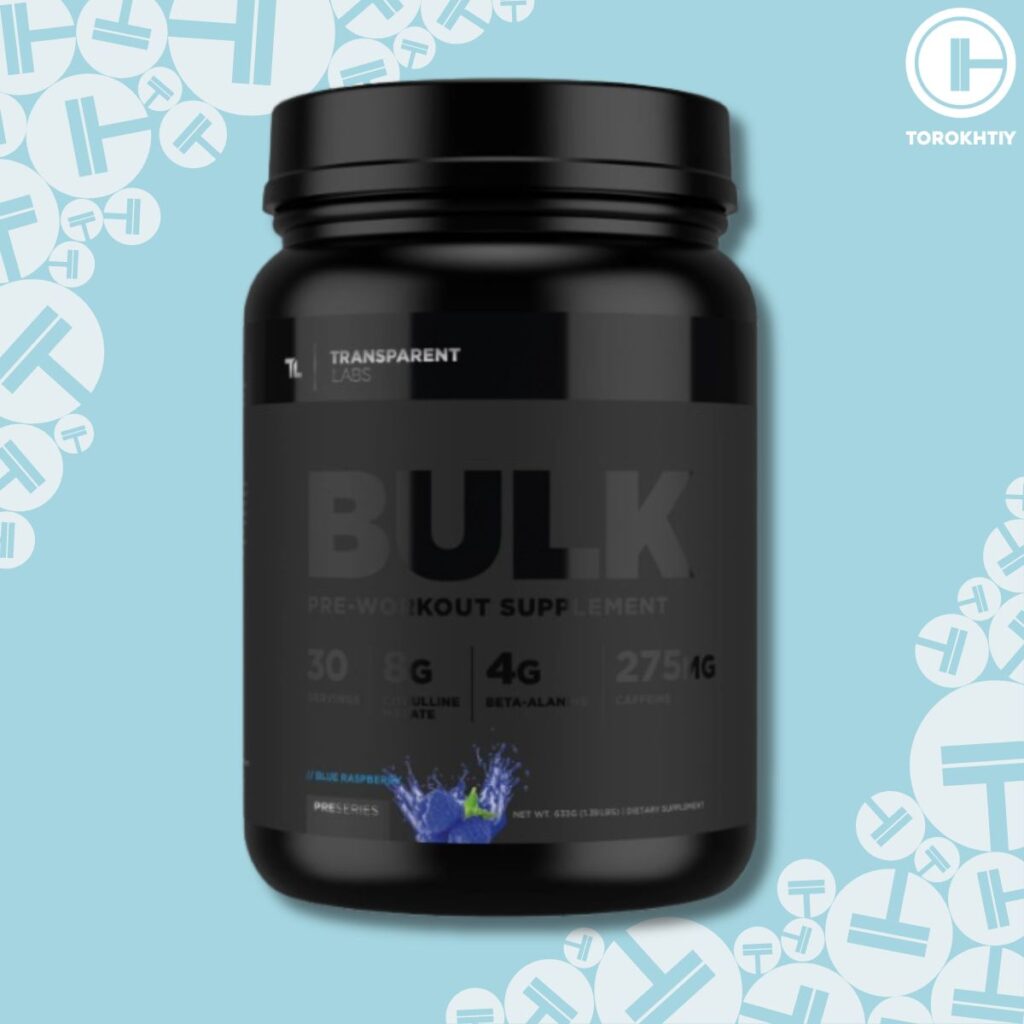
Still have questions after reading our article? Unlock your full potential by engaging with our experts and community! Don’t hesitate — leave a comment below and Jacek Szymanowski will provide a personalized answer and insights to help you reach your goals.